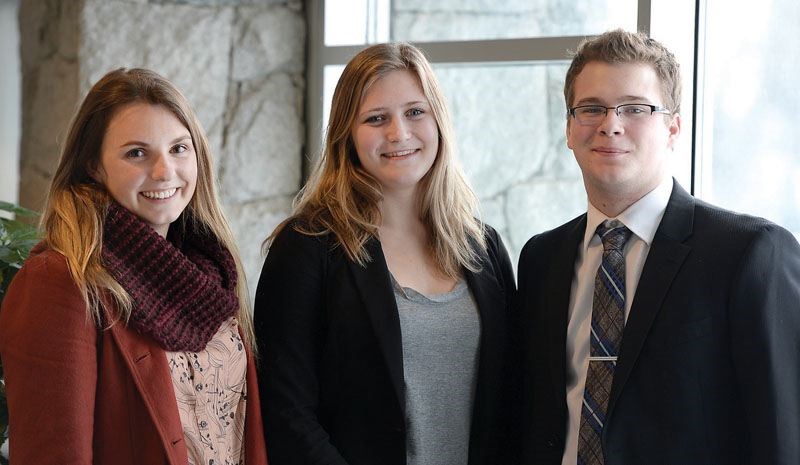The jab of a noun, the punch of a well-timed point, an undercut to an opponent’s assertion - this is the combination that makes champions in debate.
In the end, there’s no knock-out; these prose pugilists employ a long game of persuasion, and one that some students in Prince George are testing on an international stage.
Although the city’s competitors aren’t near the top of the rankings, they’re still in the ring. And this week, five local university students returned from Malaysia and the annual student competition.
“It can be really exciting as well as nerve wracking,” said Terrance Badham, one of UNBC's competitors at the World Universities Debating Championship, held Dec. 27 to Jan. 3.
The usual controversial topics that come to mind - like abortion or euthanasia - are cliched examples of what competitors discuss, said Badham, who is president of UNBC’s debate society.
“We’ll talk about the same sort of principles, like how to treat sexual assault cases in a court system,” he said, and whether an accused should face the principle of beyond reasonable doubt or one of “preponderance of evidence,” which lightens the burden of proof for a guilty verdict.
Or whether internet access should be cut off in Syria, where ISIS is known to use social media to mobilize its followers.
In each case, teams take adversarial positions and competitors must fight for a cause whether it falls within their personal belief or not.
To Imogene McDonald, also a member of the debate society, that’s the most interesting part.
“If you say something, you can’t just assert it, you have to defend it,” said the 21-year-old who was one of the judges in Malaysia - her third time at the world competition. “Some people choose things based on their values and previous experiences but for us in debate, we rely mostly on logic.
“I think too often people almost reject ideas because they don’t want to listen to the rationale behind it. In doing that sometimes we lose the ability to try and understand why the person believes something different.”
McDonald said participating in a world competition can change cultural assumptions, too. She remembers a moment facing off against teams from India, Bangladesh and Russia who challenged her assertions on political values as a Canadian understanding rather than a universal truth.
“It was really powerful.”
The fourth-year student said her reasons for participating in adversarial oration have changed over the years.
“At first it was about those speaking skills and I guess now as the years go by, it’s about building a community for our debaters,” McDonald said.
Prince George’s community pales in comparison to the hundreds of spectators at the world stage. At the final, Badham estimated more than 1,000 in the audience, far from what his debate society is used to, which has about 15 to 20 members.
“Being from UNBC and a smaller club is hard, but we’re making a lot of steps to improve,” said the 19-year-old of his team, which ranked just barely in the top half of more than 400 teams from 200 universities that competed in Malaysia.
That’s one of the reasons they organize an annual high school competition in March, which not only encourages debate for youth, but acts as recruitment for his group.
Only two high schools in Prince George - College Heights and Kelly Road - and one in Vanderhoof have clubs.
It’s what brought Badham, a former College Heights student, to debate.
“It kind of fostered the idea that this is something I’m good at, this is something I enjoy, so it became my niche in the university,” said the second-year student.
“It's really beneficial for helping people get out of their shell, getting over that public speech barrier.”



